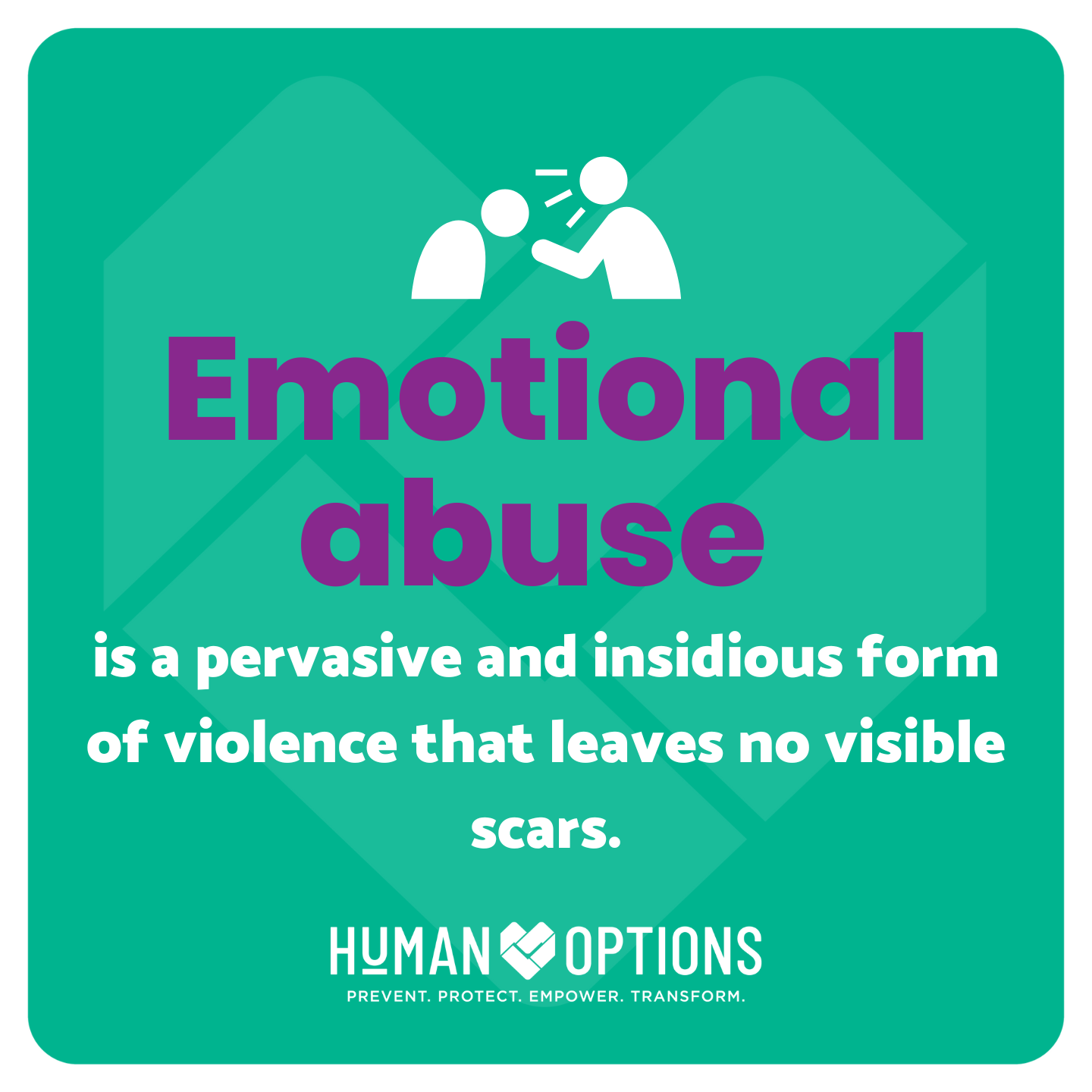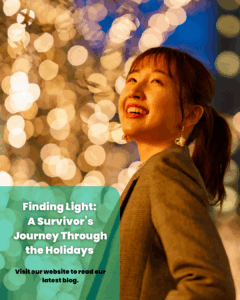By: Arezoo Shahbazi Roa, Prevention & Community Education Director
When we think about relationship violence and what it looks like, our experience and learnings associate it with physical as the main and often only form of abuse. It’s something that we can see, notice, and identify at a mere glance. It’s a type of abuse that we’re able to quickly empathize with because of how easy it is to detect. However, in our work we often see the many faces of abuse and how it shows up in an abusive relationship. Emotional abuse is a pervasive and insidious form of violence that leaves no visible scars, yet it can have some of the most devastating and long-lasting effects on victims. It can be subtle, making it challenging to detect or recognize when it’s happening.
When we hear from survivors who have safely gotten out of their abusive relationships, they often share about what they missed or didn’t realize was abuse. A common thing we always here is, “well my partner didn’t hit me, so I didn’t think it was abuse.” Or, “If I would have just paid attention to the red flags maybe I would have gotten out sooner.” To understand this form of abuse, I will delve into what emotional abuse is, how it shows up in abusive relationships, the severity and impacts of it and ways to heal and get support in dealing with it.
Emotional abuse typically involves manipulation, control and psychological tactics to breakdown a victim’s self-esteem and well-being over time, making it hard to notice when it’s happening. It’s the gradual process that begins to take over victims, making it harder to notice when or what is happening. The tactics used by abusers are ones that victims typically don’t notice or miss because of the nature of their relationship, leading to victims grappling with what they feel like are good times versus feeling tension and walking on eggshells.
Subtlety
Emotional abuse is often subtle and occurs over time. It sometimes starts with seemingly harmless comments or behaviors that gradually build into more damaging forms of manipulation. It could start with things like “you aren’t planning to wear that are you?” “I’m only saying this because I care about you.” It then builds into something more blatant like “you’re so stupid, no one is going to believe you.”
Isolation
Isolation is used by abusers to control their partner. This is typically hard for outsiders to notice because the abuser creates a situation where the victim must make a choice between their relationship and family or friends. Abusive partners can manipulate the victim into thinking they want to spend more time alone with them, or that there is something wrong with their family and friends, slowly pulling them away from those around them.
Low Self-Esteem
Emotional abuse is intended to erode the victim’s self-esteem which causes them to doubt their self-worth, making it harder for them to notice when they are being mistreated. Low self-esteem depletes their energy and can bring their mental health and well-being to an all-time low. This low self-esteem causes victims to become more reliant on their abuser, assuming everything they say and do is correct or valid.
The sad reality of emotional abuse is it can have serious and lasting effects on a person’s health and well-being and in its most severe cases contribute to thoughts of suicide and leading to suicidal behaviors. In understanding the connection between suicidal thoughts and emotional abuse, this can help us in our community to better support victims who are feeling helpless and out of options. We see in our work the destructive impact emotional abuse has on mental health, causing severe issues including depression, anxiety, post-traumatic stress disorder (PTSD) and low self-esteem. The result of these issues leads to unhealthy coping mechanisms that develop when experiencing abuse such as self-harm or substance abuse, as a way to numb the emotional pain and turmoil, leading to higher risks of self-destructive thoughts and actions. The overlap of different forms of abuse increases the likelihood that these things can happen. For example, with the increase in digital abuse occurring at higher rates over the last several years, can lead to intense feelings of shame or guilt which can be overwhelming for victims and further contribute to suicidal thoughts.
Recognizing emotional abuse typically requires a deep understanding of healthy relationships, empathy and being able to recognize patterns and red flags. Education and awareness about the signs of emotional abuse are crucial steps in helping victims recognize and escape harmful situations.
If you or someone you know is experiencing emotional abuse in their relationships and/or is struggling with depression or anxiety as a result of their relationship, it’s essential to seek help and support. It’s crucial to be aware of warning signs of suicide, such as talking about wanting to die, expressing feelings of hopelessness, or engaging in dangerous behaviors. If you suspect someone is at risk, take their words and actions seriously and seek help immediately.
It’s important to remember that abuse in any of its forms is never acceptable or justifiable, and support and resources are always available for anyone in need of help. At Human Options we have a 24/7 hotline where victims can speak with an empathetic caring advocate to help them navigate resources and validate their experience. Additionally, we offer counseling for more specialized support and strategies for coping with the effects of emotional abuse and suicidal thoughts because of an abusive relationship. For more information call our hotline at 877-854-3594 or visit humanoptions.org.





